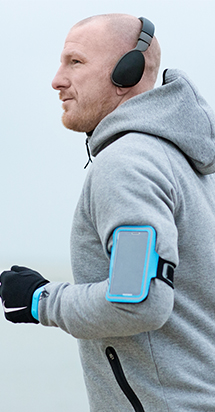Has the pace of expat life caused you to neglect your exercise routine? Or have you never had an exercise routine but you want to get started?
How to start a workout routine?
There are a few things you can do to make getting started with exercise feel less intimidating:
Start small
Don’t think of working out as a massive commitment. You don’t need to join a gym, attend a class or start training for a 5K run to incorporate exercise into your life. Just 30 minutes of fast walking or a 10 minute High Intensity Interval Training (HIIT) session will begin to have an impact over time. Easy ways to get started include getting off public transport a stop or two early and walking or taking the stairs for a few floors while you are at work.
What is HIIT? High Intensity Interval Training is a form of exercise that involves short, intense bursts of activity followed a by short rest periods, and is thought to be as beneficial as longer periods of continuous exercise.
Fuel your body
To have the energy to exercise, your body needs to be powered by the right foods. Eating sugary food and drinking caffeine will combat lethargy and tiredness in the short term but it will be followed by a nasty slump. Although breaking sugar addiction is difficult at the start, once you start to feel the benefit of exercising it should become easier.
Instead provide your body with slow release energy by making the bulk of your diet fruit and vegetable based. Supplement this with slow release carbohydrates (oats, sweet potato, brown rice, quinoa) and protein rich meat.
Stretch
Start at home
Do something you enjoy
The more you enjoy the exercise you do, the more likely you are to do it. Try and think outside the box, what did you enjoy as a child? Skipping rope? The freedom of cycling your bike? Dance? Try to incorporate them into your routine. If there was a team sport you enjoyed, see if there is a team locally. Not only will this help your health and fitness it will also help you meet new people while on assignment.
Set goals
Monitor your heart rate
Regular exercise benefits your heart. When you are exercising monitor your heart rate to ensure you are exercising enough to increase it over 100 beats per minute but are not overexerting yourself. An easy way to calculate the maximum your heart rate should reach is to subtract your age from 220 beats per minute.
Although it may take some time before you see changes to your body from regular exercise, you are likely to feel some of the benefits straight away including:
- Improved mood
- Better sleep
- Boost in energy
So what are you waiting for? Get moving towards a fitter, healthier you. Remember, it is always worth checking in with your family doctor before embarking on a new fitness regimen.









